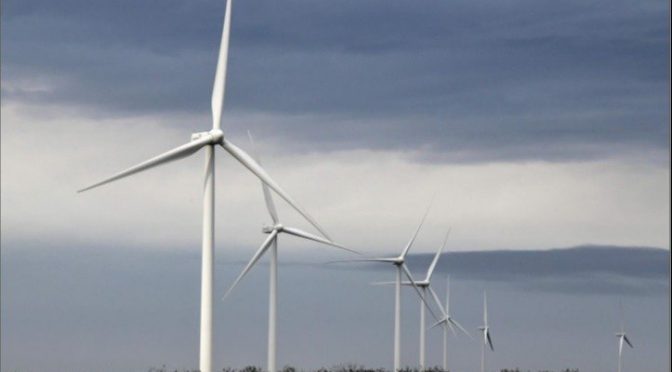To obtain a concrete overview of the current situation in the region, the country and the world, we got in touch with two specialists in the sector: Rosío Antinori, from Tresarroyense, a lawyer and provincial deputy, and with Regina Ranieri, engineer, Business Development Manager at UL Renewables and leader in the field. With them we discussed three axes: Southwest Buenos Aires, international context and a look to the future.
Rosío Antinori: “We are privileged that Bahía Blanca and its region stand out for the quality of their winds, the availability of rural areas for the development of parks, the port infrastructure, the road transport networks, among other great benefits . This resulted in 60% of the total parks awarded in the RenovAR program being concentrated in this area.
We are proud of what has been achieved. Today we have 10 wind farms operating, with an immediate impact. According to an estimate from the National Energy Secretariat, the wind sector generated 8 thousand jobs. And that of renewable energies in its entirety, 17 thousand. And 70% of the wind farms in the country are owned by Argentine companies.
In terms of energy, the results are remarkable. The municipality of Bahía Blanca, for example, already produces more energy with the wind than its homes consume. In the first two months of 2019, the wind mills injected 170 GWh into the grid, while the local energy distributor delivered 120 GWh in the city in the same period ”.
Regina Ranieri: “Biden’s success has an international benefit for renewable energy. The United States and China are the main emitters of greenhouse gases in the world. For our country (which means 1% of global pollution) the result of the election may benefit in that there are US funds investing in Argentina that could have more incentives to develop renewables. But to the extent that we cannot show that we have a long-term vision, legal certainty or incentives to invest, it will not be possible. We depend on how the country is favored to receive investments ”.
Looking to the future
Regina Ranieri: “By not having visibility or long-term vision, companies that generate employment and activity in industry (manufacturing, engineering, electricity, etc.) leave or decide to invest in other countries. At the moment, Vaca Muerta has been prioritized, which goes against renewables, but in favor of employment, something necessary in the pandemic context. This caused the renewables plan to be neglected and, as the vision was not communicated, the chances are difficult.
Two bills are being worked on: 1) Sustainable logistics and electromobility and 2) Hydrogen. With these two industries there are possibilities to store energy and generate a new supply / demand scenario to expand the renewable energy market.
Contrary to popular belief, renewable energy is inexpensive. They are even cheaper than traditional ones. And the key is in the benefits it brings. That is where the intelligence of Argentina has to lie to promote the conditions of renewables: generate viable conditions for investors to come closer.
Antinori: “I am convinced that we have overcome one of the biggest problems: getting out of inertia and moving into motion. That is, to turn the wheel of renewables. Now the challenge will be to keep it spinning. And for that, the role of us, of the mayors, of the investors, and of everyone who believes that this is the way here, will be decisive and fundamental ”.
Renewable energies, including wind energy, are the present and the future of the world, there is no possible discussion regarding that statement. The Southwest of Buenos Aires is a pioneer in the country due to the construction of several wind farms within the framework of the RenovAR program and may be key to development due to the quality of its winds, its proximity to the port and the Free Trade Zone.


